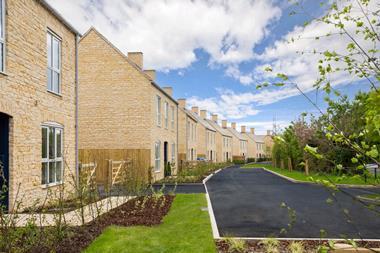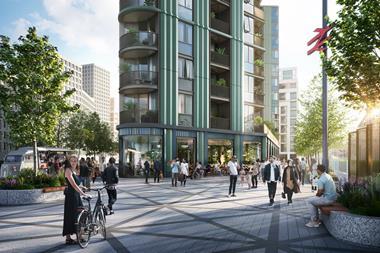A first-time buyer today requires 10 times the deposit they did in the 1980s, according to the National Housing Federation.

Fewer than 150,000 homes were built in every year of the last coalition government, compared with 190,000 homes a year under New Labour, which was itself a low for a post-war government. Britain has the highest proportion of households of OECD (Organisation for Economic Co-operation and Development) countries receiving cash allowances to support rent, and we now spend around £10bn on housing benefit for in-work households; the eviction of tenants is at a record high. Official figures show that sleeping rough in England is up 55% since 2010 (and up 78% in London), while families in temporary accommodation are increasing too.”
Difficult to argue with this parade of facts, and no doubt that is why it appeared in the press release as a ‘note to editors’ announcing Jeremy Corbyn’s planned housing policies should he ever lead government.
The trouble with comrade Corbyn, as I don’t suppose he would mind me calling him, is that the track record of the public sector he so admires, in creating places where people actually want to live, is not at all convincing. The monotonous cultural and social ghettoes that spread across the country for many decades from the 1950s onwards may have provided much-needed housing numbers, but in far too many cases this was at the expense of coherent and integrated communities.
At worst, it resulted in estates that are now busily being demolished at vast public expense, before the soft loans used to build them have been repaid. The demolition of tower blocks, and proposals such as the disgraceful replacement of Robin Hood Gardens in east London, should be a cause for hand-wringing, not glee. First you waste the cost of original construction. Then you pay for decanting. Then you (that is to say us) pay for demolition. Then you pay for the replacement construction. What a horrific waste not just of money but of embodied energy and the opportunity to limit carbon emissions.
Even worse, the command economy attitude to provision of the monocultural mirrored to some extent the real austerity world of butter coupons and meat rations (not the non-austerity world we have been experiencing recently, whatever Corbyn and his pals may say). That attitude is essentially that you should count yourself lucky to be the recipient of public largesse. That in turn leads to management attitudes and allocation policies, which have little to do with what has made our cities great in the past: the mixing of class, wealth and activity, work rest and play. Instead it is simply about tick-box targets, an attitude that is alive and well following the hopeless housing numbers delivered since we cut out local authorities from the housing provision process.
Some enlightened authorities are making a comeback on the provision front, partly because of the need to upgrade estates that have to a greater or lesser extent stood the test of time. What they could do with from politicians of any persuasion is encouragement not diktat, and a clear message that quality of place should not be sacrificed in favour of quantity, as though the two were automatic opposites.
A properly thought-through policy in respect of housing would not start by attacking the private sector, or even the private rental sector (however weird its tax subsidies have looked). It would look at how you provide quantity and quality, how we have done this in the past and the lessons we can learn both from history, and from what others are managing elsewhere in Europe and beyond.
Not the least of the issues to be examined is that of public sector land ownership and how sites could come to both private and social housing providers at a price that allows some sanity to return to the cost of homes to average families. These are matters of detail rather than the broad-brush rhetoric that passes for thought in parts of the Labour party.
But let’s face it, do the other lot, at least on the basis of recent evidence, have much themselves to offer?
Paul Finch is programme director of the World Architecture Festival






























No comments yet